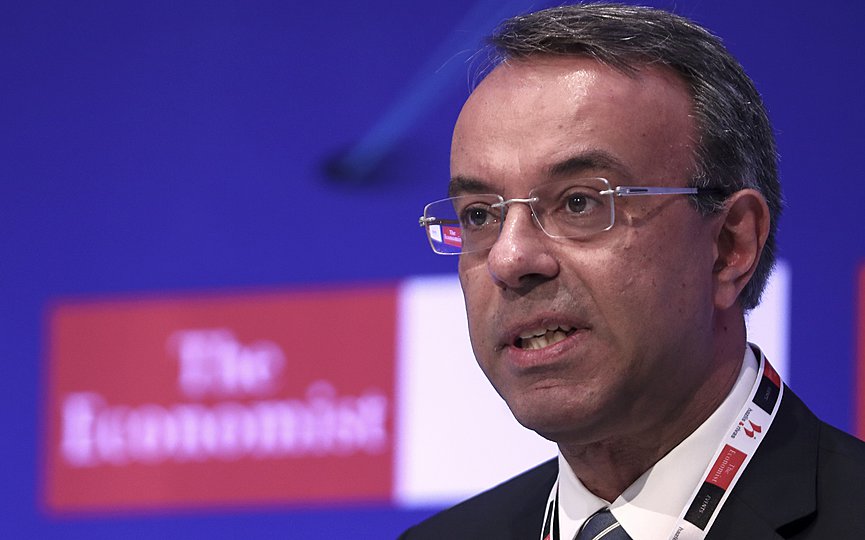General News
Meropi Kyriacou Honored as TNH Educator of the Year
NEW YORK – Meropi Kyriacou, the new Principal of The Cathedral School in Manhattan, was honored as The National Herald’s Educator of the Year.

ATHENS – With the New Democracy government now allowing banks to foreclose on people’s primary homes, its Finance Minister Christos Staikouras urged them to find ways to help those with debts they can’t pay.
“Today, in a climate of increased challenges, rising threats, strong volatility, and high uncertainty internationally, the banking system must rise to the challenges,” Staikouras said in a statement to the state-run Athens-Macedonia News Agency ANA-MPA after meeting with bank leaders.
The discussion was about the economic volatility of rising interest rates during soaring inflation that cut into the ability to buy staple items at the supermarket despite a Household Basket initiative to hold down the cost of 51 items.
But the banks, the report said, are reluctant to help people despite earlier getting 50 billion euros ($52.07 billion) in bailouts and not trying to recover bad loans from businesses, concentrating on taking people’s homes.
The government and Bank of Greece Governor Yannis Stournaras told ANA-MPA the government has been supporting people as much as it can, although he didn’t say why a 24 percent Value Added Tax (VAT) on food wasn’t cut.
The state though, is putting up 9 billion euros ($9.37 billion) to pay 90 percent electric bills that doubled in the wake of Russia’s invasion of Ukraine and spiked energy prices in Europe.
Staikouras said that, “this support indirectly also benefits the financial sector, which – following the effectively implemented economic policy and the Greek economy’s positive outlooks – presents a much more robust picture compared to the past, and faces very favorable prospects.”
He added that the Finance Ministry wants banks to offer aid in various forms:
He said it was “necessary in order for banks to contribute their significant fair share in the transition effort toward a more dynamic, productive, more extroverted, digital and green economy that does not exclude anyone or create inequalities.”
NEW YORK – Meropi Kyriacou, the new Principal of The Cathedral School in Manhattan, was honored as The National Herald’s Educator of the Year.

RAFAH, Gaza Strip (AP) — Sabreen Jouda came into the world seconds after her mother left it.
ATHENS, Greece — A far-right Greek lawmaker has been charged with criminal assault for allegedly punching a colleague on the sidelines of a parliamentary debate Wednesday.
BROOKLYN, NY – From Greece to Miami to Brooklyn, Meraki Greek Bistro is now open in Williamsburg at 252 Grand Street.
SANTORINI – The prestigious sports event of Santorini, Santorini Experience, which highlights one of the top tourist destinations in the world through sports activities, will be held for the 7th year from October 3-6.
ATHENS – The distinguished Greek-American scientist Nikos Kyrpides, biologist, researcher, head of the Prokaryotic Genomics Program at the Joint Genome Institute of the U.